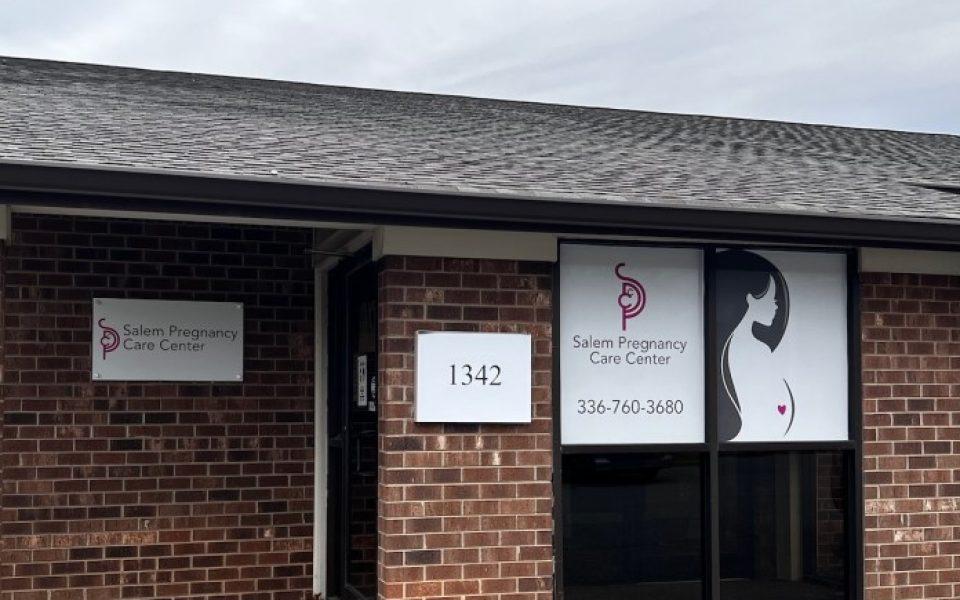Editor’s note: An earlier version of this piece noted that there was $9 million proposed by lawmakers for CPC funding.
Natasha Smith did not want to believe she was pregnant.
Even 15 or so years later, the memory is traumatic for her. After hearing she could not trust a store-bought pregnancy test, Smith, who was in her early twenties at the time, went through the phonebook and found a place that would give her the answers she needed.
“I got there and they started showing me all these videos and about five minutes into the video I realized I was in the wrong place,” Smith said. “The video was all about how abortions ruin lives.”
Smith had found herself at a crisis pregnancy center, but she did not know what those were at the time. A crisis pregnancy center is a non-profit, typically faith-based organization meant to counsel pregnant people against getting an abortion.
The woman Smith met with at the time berated her for having sex if she did not want to get pregnant, offering to connect Smith with a doctor who would provide her with a free ultrasound. When Smith refused her, the woman became angry.
“She told me I was just as bad as the terrorists who blew up the World Trade Center for considering an abortion,” Smith said. “At that point, I ran out of the center in tears.”
The center Smith went to all those years ago was the Winston-Salem crisis pregnancy center Salem Pregnancy Center, which the state government recently awarded $255,000 for the 2021-22 fiscal year. According to their website, the center does not provide abortions, nor do they refer people to abortion providers. They do offer pregnancy tests, ultrasounds and information on the supposed risks with getting an abortion, but do not list the risks for pregnancies. They also list on their site that they are not a medical facility and that “all medical services are overseen by our volunteer medical director who is a local OBGYN.”
In their 2019 tax returns, the pregnancy center, located off of Westgate Center Drive near Hanes Mall, reported $379,540 in total revenue. About two-thirds of that revenue — $252,537 — came from contributions and grants like the one the center will receive this fiscal year. The reason for Salem Pregnancy Center’s public charity status is because the organization “normally receives a substantial part of its support from a governmental unit or from the general public.” The remaining $127,003 in revenue came from direct contributions. Since 2015, the center has received increasing amounts of grants and contributions each year, with the exception of a $30,000 decrease from 2017 to 2018. However, in 2019, the center saw an increase of about $50,000 from the year prior.

According to Pro-Choice North Carolina Foundation, North Carolina is one of 14 states that fund crisis pregnancy centers like SPC. For all CPCs in North Carolina, The General Assembly has proposed over $15 million in grants for 2021 to 2023. (An earlier version of this piece noted that there was $9 million proposed by lawmakers for CPC funding.)
Pregnancy crisis centers do not have to give information on abortions when advising people who are pregnant, and some are not even licensed. There are currently 83 crisis pregnancy centers in North Carolina compared to 15 abortion clinics, down from 26 in 2017 and 37 in 2014.
According to SPC Executive Director Kimberly Jorgensen, the $255,000 grant will be used to renovate their new office, which Jorgensen says is larger and more accessible than their last.
“It’s not super transparent how those funds are applied for,” explained Tara Romano, the executive director of Pro-Choice North Carolina. “We’ve been following the diversion of public health dollars to these places that aren’t actually medical clinics, and it’s been more and more money over the years.”
In addition to signing off on funding for these centers, lawmakers have also been moving to make abortion less accessible through legislation.
Currently, the nine justices on the US Supreme Court are deciding on the future of abortion rights across the country after hearing a challenge to Roe v. Wade from Mississippi. The case, which will decide if the new Mississippi law declaring most abortions illegal after 15 weeks is unconstitutional, could set a new legal precedent that would allow North Carolina to pass similar legislation.
“We’ve already seen lawmakers introduce copycat legislation,” said Romano. “Six-week, 13-week, 15-week bans. If the court gives the okay to pass these laws that had previously been declared unconstitutional, we anticipate it happening in North Carolina.”
Pro-Choice North Carolina is 100 percent funded by individual donations and foundations, Romano explained. Places that provide abortions, like Planned Parenthood, have not gotten government grants because they are not eligible.
“Since the legislature defunded Planned Parenthood specifically in their budget process in the 2011 session, no state funds have come to Planned Parenthood on the basis of the fact that we provide abortion services in addition to other reproductive services,” said Alison Kiser, the executive director of Planned Parenthood Votes South Atlantic.
Keiser noted that if Roe is overturned, abortions will still be safe and legal in North Carolina immediately after, but that she does not count on that being the case for very long.
“It is a really scary time when you consider that without us being able to count on the courts to protect us, then we are looking at a reality in which state lawmakers can decide if someone has the ability to stop people from getting safe and legal abortions,” she said. “The statistic that one in four American women seek abortions in their lifetimes should tell folks that people from all walks of life need abortions and the harm caused by laws to restrict abortion cannot be overstated regarding their overwhelming impact on black and brown people, lower income people and rural folks.”
Learn more about Pro-Choice North Carolina and the Carolina Abortion Fund here and here.
Join the First Amendment Society, a membership that goes directly to funding TCB‘s newsroom.
We believe that reporting can save the world.
The TCB First Amendment Society recognizes the vital role of a free, unfettered press with a bundling of local experiences designed to build community, and unique engagements with our newsroom that will help you understand, and shape, local journalism’s critical role in uplifting the people in our cities.
All revenue goes directly into the newsroom as reporters’ salaries and freelance commissions.


Leave a Reply